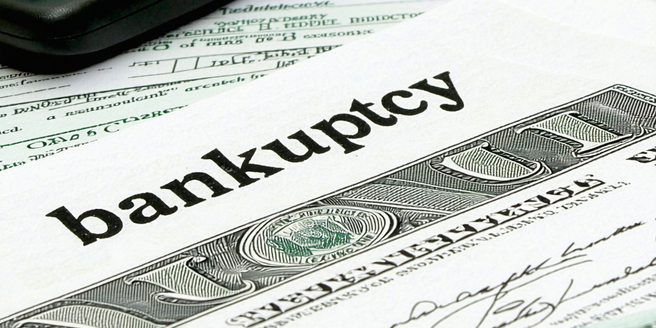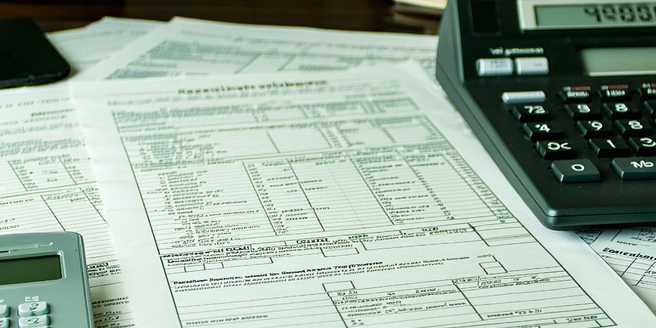Understanding Bankruptcy Basics
| Category | Description | Key Points |
| Definition | Legal status for a person or entity unable to repay debts | Offers debt resolution |
| Filing Parties | Individuals or businesses | Varies by Chapter type |
| Chapter 7 | Liquidation of assets | Quick process |
| Chapter 13 | Reorganization of debt | Requires repayment plan |
| Exemptions | State-specific assets protected | Retain essential property |
| Discharge | Release from obligation to repay | Achieved at process end |
Types of Bankruptcy and Differences
Bankruptcy can be categorized into several types, each suited for different financial situations. Chapter 7, often known as liquidation bankruptcy, involves the sale of an individual’s non-exempt assets to clear debts. This process is relatively fast but also means losing certain possessions. It’s essential for individuals to evaluate their assets and debts carefully before deciding on this option. Consulting with a financial advisor can help in making an informed decision. In contrast, Chapter 13 involves restructuring debt under a repayment plan, allowing individuals to keep their property while paying off what they owe over three to five years. There are also Chapters 11 and 12, aimed more at businesses and farmers, respectively. Understanding these differences is crucial for choosing the right bankruptcy path.
Immediate Effects on Credit Score
Filing for bankruptcy has a significant and immediate impact on your credit score. Once a bankruptcy case is filed, it appears on your credit report and can drastically lower your credit score, sometimes by hundreds of points. This negative mark signals to creditors that you might be a high-risk borrower, affecting your ability to secure new loans or credit cards. In some cases, individuals may find rebuilding credit after bankruptcy to be a daunting task, requiring patience and disciplined financial management. Furthermore, the bankruptcy can stay on your credit report for up to ten years, compounding its long-term effects on financial opportunities. Additionally, late payments and defaulted accounts may contribute to the lower credit score. It’s essential to understand this immediate impact as it will influence financial decisions following the bankruptcy filing.
Long-Term Credit Implications of Filing
The consequences of bankruptcy linger on credit reports for years, with Chapter 7 remaining for up to 10 years and Chapter 13 for seven years. This extended period can make financial recovery feel daunting for many individuals. It is important to stay informed about your credit report and periodically check for inaccuracies. With this, future credit opportunities can be limited as lenders typically view applicants who’ve filed for bankruptcy as riskier. Interest rates on loans and credit cards may be higher, reflecting the increased risk. However, over time and with positive financial behaviors, it’s possible to rebuild creditworthiness. Secured credit cards, timely bill payments, and maintaining low credit utilization ratios are key strategies in regaining favorable credit standings over time.
Rebuilding Credit: Steps to Take
Recovering from bankruptcy requires strategic actions to rebuild credit effectively. Begin by obtaining a secured credit card where your credit line is backed by a cash deposit. Consistent, timely payments on this account can help restore your credit history. Moreover, it is important to create a realistic budget that helps control spending and encourages saving. Seeking guidance from a financial advisor can also provide valuable insights and strategies tailored to your situation. Additionally, maintaining low balances in relation to your credit limit shows responsible credit use. Regularly monitoring credit reports for errors and working to address them ensures that inaccuracies don’t hinder your progress. Over time, these gradual steps demonstrate creditworthiness and set the stage for improving your financial stability post-bankruptcy.
Credit Counseling in Bankruptcy Cases
Credit counseling plays a pivotal role in bankruptcy cases. Before filing for bankruptcy, debtors are required to complete credit counseling through an approved agency. This counseling provides individuals with a better understanding of their financial situation and explores alternative debt relief options. In some instances, exploring these alternatives can help individuals avoid bankruptcy altogether. Moreover, it allows debtors to make informed decisions about their financial future. It is crucial for debtors to thoroughly assess their financial strategies during this period. Post-filing, individuals may need to attend debtor education courses that impart essential personal financial management skills. These sessions and courses aim to equip participants with the tools necessary to build healthier financial habits, avoid future insolvency, and work towards financial rehabilitation.
Legal Considerations and Options
Understanding the legal landscape is crucial when considering bankruptcy. Filing for bankruptcy involves navigating complex legal statutes and procedures, whether as an individual or business. Consulting with professionals early can prevent costly mistakes. It can be overwhelming to grasp the intricacies without professional assistance. With the ever-changing laws, staying informed is essential for anyone contemplating this legal route. It’s often advisable to engage a seasoned bankruptcy attorney who can guide you through the process, ensuring compliance with all court mandates. Legal professionals aid in deciding the suitable type of bankruptcy and help manage filing documentation. Additionally, they offer insights into alternative options such as debt negotiation or settlement, providing a comprehensive view of potential solutions to financial distress before finalizing a bankruptcy decision.
How Bankruptcy Affects Future Credit
Bankruptcy can substantially alter future credit and loan opportunities. With bankruptcy on your credit report, lenders may hesitate to grant credit, fearing default risk. Should a lender extend credit, it might come with steeper interest rates. It’s important to be aware that bankruptcy can remain on your credit report for up to ten years. This extended impact can influence decisions beyond just loans and credits. Potential landlords may also scrutinize your financial history, affecting rental opportunities. Nevertheless, consistent financial discipline post-bankruptcy, like regular payments and active credit monitoring, can gradually improve credit scores, showing creditworthiness. Engaging positively with credit helps mitigate long-term repercussions and aids in regaining favorable borrowing terms in future financial endeavors.
Alternative Solutions to Bankruptcy
Bankruptcy isn’t the only path to resolving financial distress, and exploring alternatives can be beneficial. Debt consolidation is an option where higher-interest debts are combined into a single loan with a potential interest rate reduction. Seeking professional advice can shed light on strategies to manage debt more effectively. In some cases, increasing your income through part-time work or a side hustle can provide the additional funds needed to manage your debt. Negotiation with creditors for modified payment agreements can also alleviate financial pressures. Consulting a financial advisor for a structured budget plan provides insights into expense management, potentially avoiding bankruptcy declaration altogether. While bankruptcy offers debt relief, exploring these alternatives could yield favorable outcomes without the severe long-term credit impacts associated with bankruptcy filings.
Tips for Avoiding Bankruptcy
Proactive financial planning is key to avoiding bankruptcy. Establishing a detailed budget to track income and expenses helps identify overspending areas and manage disposable income effectively. Building an emergency fund to cover unforeseen expenses ensures financial stability during lean times. Regularly reviewing financial goals can also help track progress and make necessary adjustments. Engaging with creditors early to negotiate payment plans can avert creditor harassment and potential defaults. Seeking professional advice from financial advisers can further enhance your financial strategies. Additionally, prioritizing debt repayment and consulting credit counselors for tailored advice provides insights into maintaining financial health. These measures form the backbone of prudent financial management, averting bankruptcy and fostering long-term economic security.



